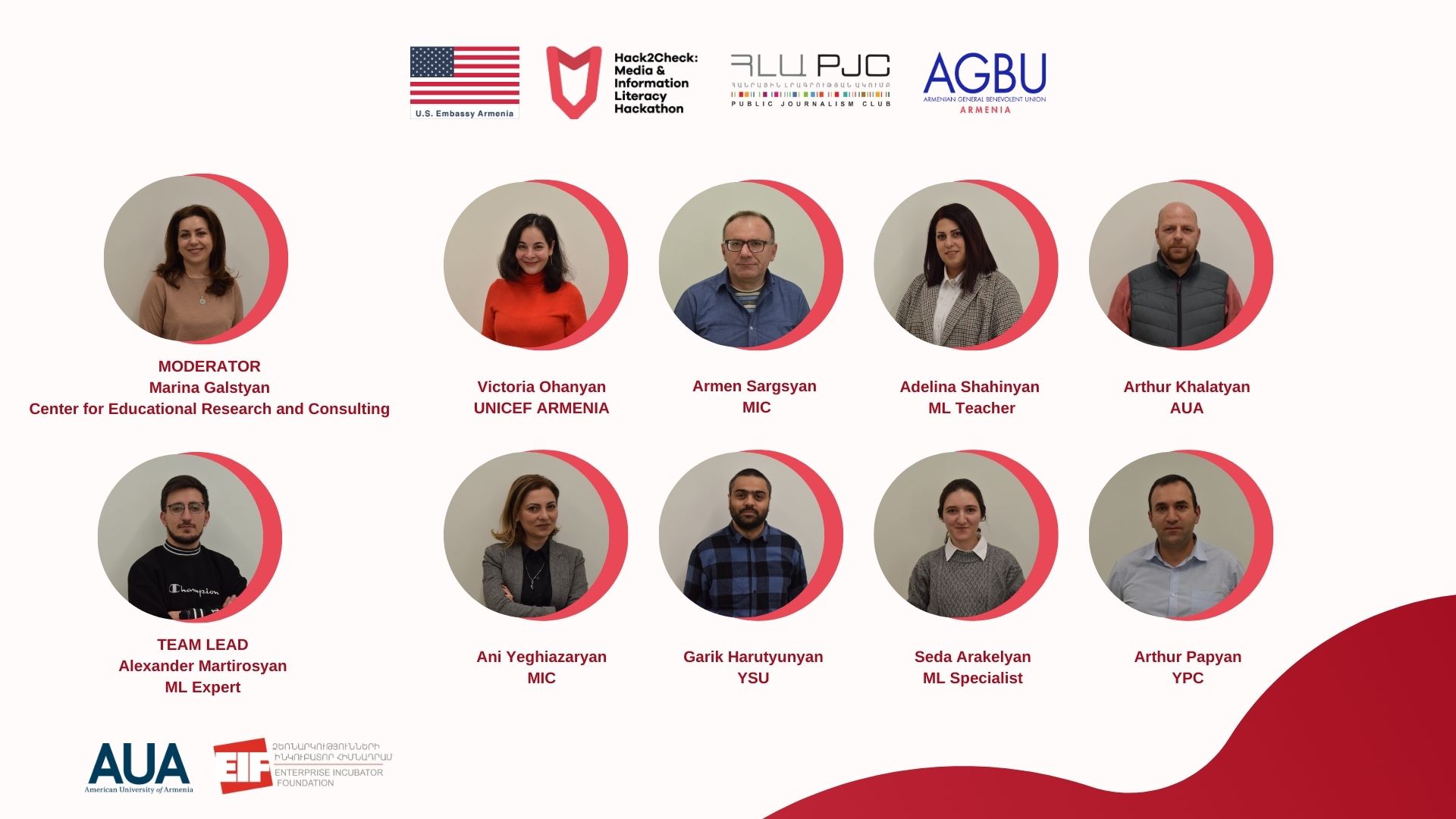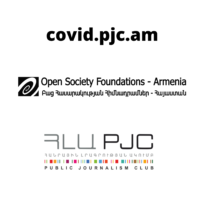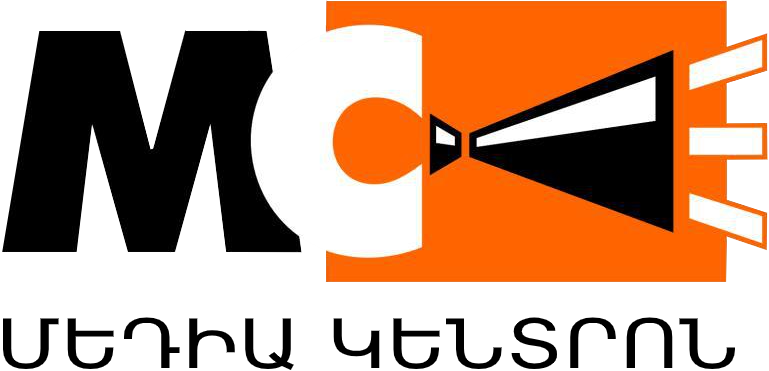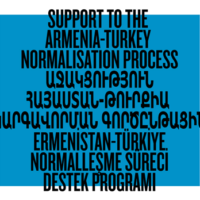
“Hack2Check: Media and Information Literacy Hackathon” preparations officially kicked off!
- December 12, 2023
- Category: News
“Hack2Check: Media and Information Literacy Hackathon” preparations officially kicked off!
The goal of the hackathon is to improve media, digital, and information literacy and combat computational propaganda, as well as encourage teams in Information Communication Technologies (TCT) to design and develop solutions aimed at solving important challenges in Armenian society in the context of media literacy.
Experts in media literacy, digital security, and education representing international and local organizations were invited to take part in the “Hack2Check Problem Identification and Formulation Stage.” During the discussion on December 4, members of the advisory group highlighted the most urgent challenges and issues related to propaganda, fact-checking, and media literacy in Armenia. The advisory group also participated in an online survey, through which PJC collected a more in-depth analysis of the current level of media literacy, challenges, existing programs, and international best practices.
Members of the advisory group are:
1. Victoria Ohanyan, Access to Justice Program Officer at UNICEF Armenia
2. Armen Sargsyan, media expert at the Media Initiatives Center
3. Artur Papyan, head of the Yerevan Press Club
4. Arthur Khalatyan, American University of Armenia, Program Chair for ME in Industrial Engineering and Systems Management, STEMGen Program Principal Investigator
5. Ani Yeghiazaryan, program manager at the Media Initiatives Center
6. Garik Harutyunyan, lecturer at the Faculty of Journalism at Yerevan State University
7. Seda Arakelyan, media literacy specialist
8. Adelina Shahinyan, media literacy teacher
9. Alexander Martirosyan, media literacy expert
Alexander Martirosyan, a member of the advisory group of the “Hack2Check Problem Identification and Formulation Stage,” believes that current time regardless of one’s profession and interests, comprehensive competencies in media and information literacy are crucial for our society.
“It is a daily dilemma to trust or not to trust, to believe or not to believe when surfing social media and news feeds. I highly value the efforts of the “Hack2Check” hackathon and related initiatives, which highlight the importance of media and information literacy in our rapidly growing digital world. It emphasizes the complexities of our information ecosystem and, at the same time, promotes collaborative solutions,” said Martirosyan.
Media literacy expert Armen Sargsyan thinks that such initiatives are an opportunity for specialists in the field to get to know each other.
“Besides the fact other form relationships, we exchange ideas and find common approaches as well,” he shared with PJC.
Adelina Shahinyan, who is a media literacy teacher, believes that such events can improve media literacy in Armenia.
“This can also help to improve media literacy in educational fields and guide vulnerable groups when browsing media,” she said.
As a result of the discussions, the advisory group defined the problems of the “Hack2Check: Media and Information Literacy Hackathon” and selected the target groups of the initiative. Next, the group will continue to work on clarifying the technical tasks of the hackathon and other important details. As a result of these efforts, the specific objectives of the hackathon will be developed and formulated, which will enable the participants to propose targeted solutions.
The Public Journalism Club is implementing the “Hack2Check: Media and Information Literacy Hackathon” in collaboration with the Armenian General Benevolent Union (AGBU) funded by a grant from the United States Department of State.
Additional partners of the project are the American University of Armenia and the Enterprise Incubator Foundation with its Gyumri and Vanadzor Technology Centers. You can read more about the project here: https://shorturl.at/kwIOV.





